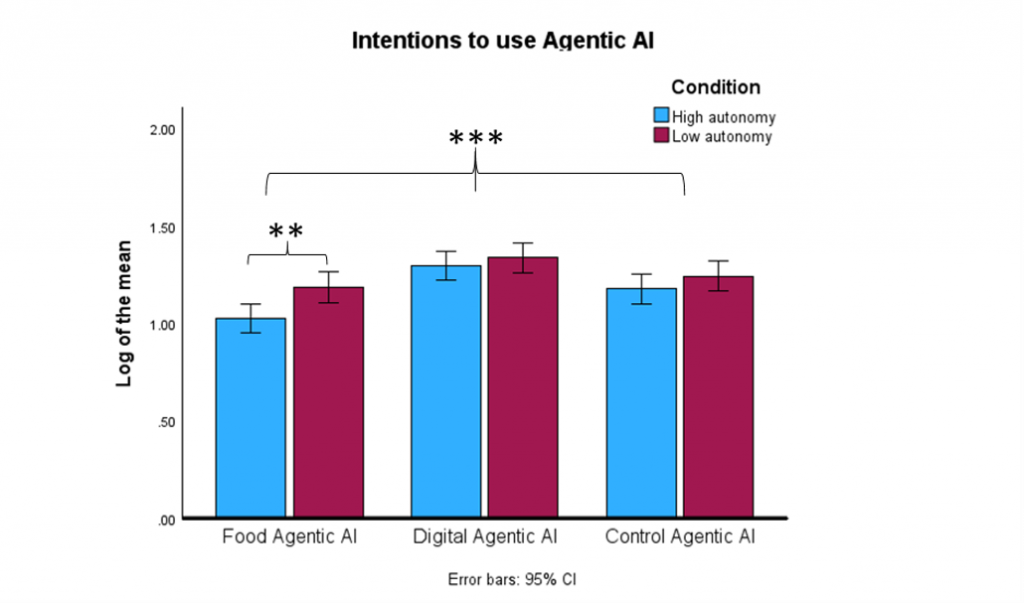Artificial Intelligence (AI) is rapidly becoming part of our daily routines — from scheduling calendars to recommending what we watch next. But what happens when AI is no longer just a tool, but an agent that makes decisions on our behalf and can help us reduce carbon emissions?
To answer these questions, we conducted a nationally representative online study in the UK (≈1,500 participants). We wanted to understand whether people are willing to let AI systems take on everyday decisions (second-order agency), and how this varies depending on the type of activity (food-related, digital footprint, or a neutral control activity) and the level of agency (high vs low agency the Agentic AI has.
We found that people were less willing to use Agentic AI for food-related decisions, than for digital organisation tasks. Across all activities, participants reported being more willingly to accept low-autonomy AI, where they retained the final say, over high-autonomy systems, except for the digital scenarios, were acceptance was notably similar. Finally, we found that acceptance was not just about the technology itself, but whether people felt it supported their psychological need, specifically if the Agentic AI allowed them to feel competent and in control when fulfilling the task. In other words, people were more willing to adopt Agentic AI if they believed it would help them achieve goals effectively, without undermining their own ability to act.
These findings suggest that the road to AI-powered sustainability is not simply about building more capable systems. Instead, acceptance depends on designing AI that preserves their sense of control, and demonstrates competence in the tasks it supports. Overall, this study suggests that successful adoption of Agentic AI for carbon footprint reduction will depend on balancing innovation with psychological needs and context.
